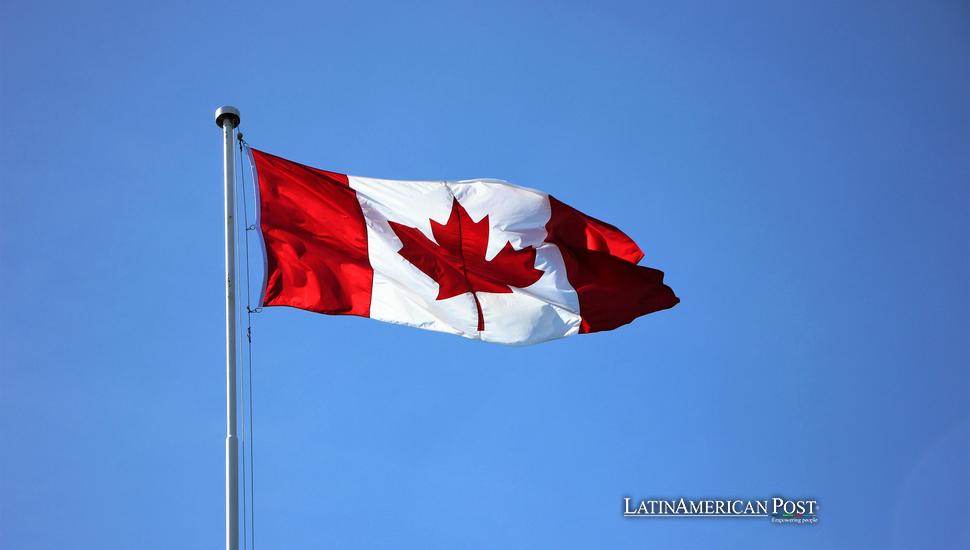Canada Needs a Latin America Strategy and Stop Ignoring Its Neighbors

All this adds up to a superficial relationship. As strong as the economic, cultural, and diplomatic ties between Canada and Latin America might be, they seem like take-it-or-leave-it affairs, waiting for the moment when some greater priority finally comes. Sadly, it often does. Although it is high time Murphy’s Law ended Canada’s relationship with Latin America, its foreign policy establishment cannot even provide a coherent strategy to end it. Instead, despite a generally positive international reputation (for the moment), the Howard and Conservatives’ approach was dismantled without a straightforward replacement. Sure, Ottawa developed Asia and Africa strategies, but Latin America? Latin America has always been a diplomatic hashtag.
Canada’s Overlooked Backyard
Latin America and the Caribbean are just three to four hours away from Canada by air and two days by ship. They are essential constituents as former colonial actors of the current First World and are important economic partners (two-way trade in the region stands at more than 90 billion Canadian dollars, with significant Canadian investments in extractive industries and technologies). And yet, whenever Canadian foreign ministers can’t decide where to go next, or when they visit regional bodies that aren’t presided over by the United States, they go to East Asia, Africa, Eastern Europe, you name it. They seldom choose Latin America and the Caribbean. Why? Ottawa’s unwillingness to have a comprehensive regional strategy suggests that Canadian foreign policy priority always does and will gravitate toward the global North.
And this is even though Latin America is all global and Canadian for the first time in our history.
Regarding the challenges we face together, Canada must deepen its engagement to promote regional stability and democratic development and, at best, ameliorate humanitarian catastrophes. But this requires a plan. One more-or-less off-hand trade deal with an inchoate political party south of the border or one more tour of diplomatic outreach by a no-longer-young political leader will not suffice. Canada needs to be more of a full and active stakeholder in this swiftly moving region, which is not incidental but a near neighbor. Or we will risk being mere observers of events far closer to home. 4
Risks to Canada’s Influence and Values
There’s a high price to be paid for Canada’s absence in Latin America. As other global powers, especially China, grow their influence across the continent, Canada’s voice is becoming increasingly marginal. As Chinese capital brings new infrastructure, technology, and gains in productivity and energy production, Latin American economies are being recalibrated, and Beijing’s influence is strengthening. Canada offers an alternative approach to foreign engagement from the immense Chinese capital flow. It is anchored in democratic values and supported by a general defense of human rights, but only if it is present and proactive in the region. Without a clear strategy, Canada’s vision of democratic government and respect for human rights is simply drowned out.
Neglecting Latin America also damages Canada’s global image as a standard-bearer for human rights. While Canada has been a passionate advocate of human rights abroad, it has a poor record of mobilizing on human rights issues in its backyard, such as the current humanitarian crisis in Venezuela or issues related to ongoing political challenges in Cuba. On matters close to home, Canada’s failure to speak out reflects poorly on its stated approach to human rights. It risks damaging Canada’s credibility when it insists that its pursuit of human rights is principled and consistent if those principles are only occasionally applied. A human-rights-infused Latin America strategy would help reaffirm the global perception of Canada as a defender of democracy and human rights while helping address real-world needs.
Why a Latin America Strategy Matters to Canadians
It’s not political rhetoric: family ties to Latin America run deep in many Canadian homes. With large pockets of Latin America’s diaspora in Canada, interest in the region and support for those ties continues to grow. These bustling communities want to know that their home countries are considered meaningful partners – not just nifty footnotes to Canada’s foreign policy. Whether or not Ottawa develops a ‘strategy for Latin America,’ creating close ties through culture, tourists, and financial flows may be just as natural a part of Canada’s rebalancing abroad as our efforts to court Asia. A broad-ranging bilateral strategy with the peoples of Latin America would reflect Ottawa’s commitment to its diversifying population – while laying down the bridges that would allow us to benefit from the coming boom in our southern neighborhoods.
It goes far beyond cultural relationship building. There’s much for Canada to gain in sectors such as education and tourism, sports, and relationship-building efforts with Indigenous peoples in Canada and Latin America. Imagine a mutually beneficial relationship between Canada’s Indigenous peoples and Indigenous peoples in Latin America, for instance. Consider how vital such a relationship could be for the diverse Indigenous peoples in Canada seeking opportunities to engage with their sisters and brothers in Latin America. These opportunity-driven bonds can become avenues for relationship-building and deepen Canada’s regional reputation. A strategy plan, with specific actions and activities, can provide structure to these possibilities so that a Canada-Latin America future is one in which people-to-people relationships play a central and prominent role alongside economic ties and build upon our commonalities, history, and traditions in a relationship so much more than an economic one.
What Canada’s Latin America Approach Should Look Like
However, a Latin American strategy need not be complex: if it is designed with the right firms, partners, levels of commitment, and focus, it will provide results. It should start by focusing on economic relationships. Commercial ties between Canada and Latin America are already strong, with dynamic trade connections involving Mexico, Brazil, and Chile, the continent’s three biggest economies. Ottawa has the scope to assist Canadian firms in accessing new markets and deepening economic relationships in priority sectors.
Beyond the realm of trade, Canada could deepen diplomatic and cultural connections, using existing points of departure to create educational exchange programs, scientific collaboration, and tourism initiatives that emphasize shared heritage – and perhaps exploit Canada’s own diversity to earn goodwill throughout Latin America. At the same time, Canada could bolster its soft power through sustained commitment to democracy and human rights. For example, it could help civil society groups, promote democratic resilience, and assist those in humanitarian crises.
Most importantly, the commitment has to be sustained, which would entail hiring or retaining Latin American specialists from Global Affairs Canada and a genuine, sustained investment in the region. The second part of this would require political will, which is focused on ministerial and diplomatic attention, making Latin America a strategic priority not just because the stars are aligned or because there’s a good pitch but one of clear and sustained political will.
Also read: Daylight Saving Time Won’t Fix Brazil’s Energy Crisis
It’s time for Canada to pay more attention to Latin America and think about its place in our hemisphere in a new way. An organized strategy would strengthen economic and diplomatic ties with the Americas. It would also reaffirm our place in the hemisphere and reinforce our understanding of being Canadian. Given enough vision and will to act, Canada has a chance to become more than just a geographic name in the region. It can be the country we are in this part of the world – one that encourages prosperity, freedom, and shared values and ideas in a way that liberates Canada and Latin America. Canada can step up.





